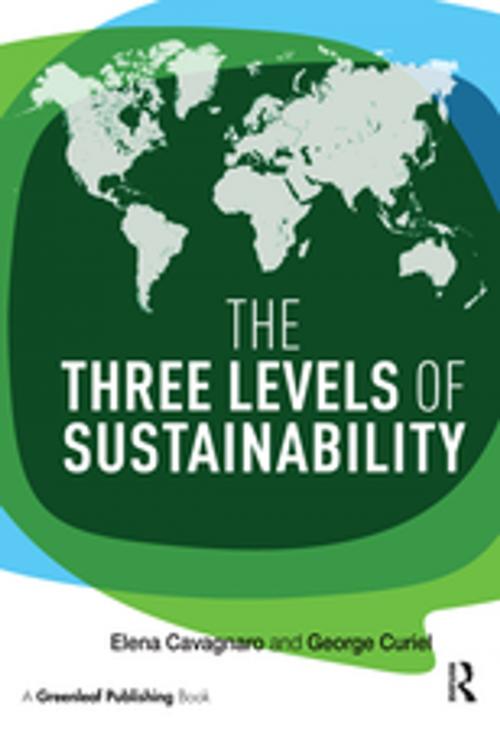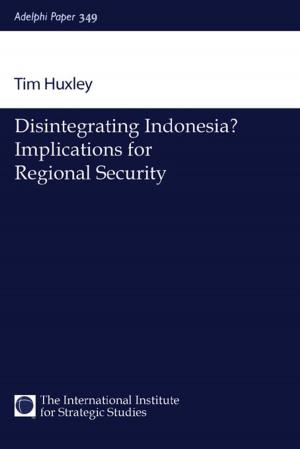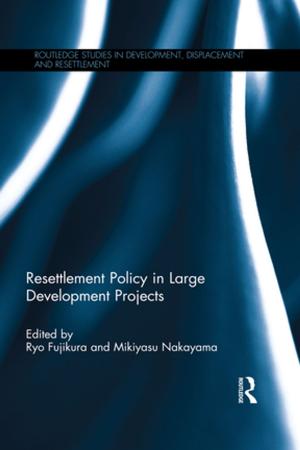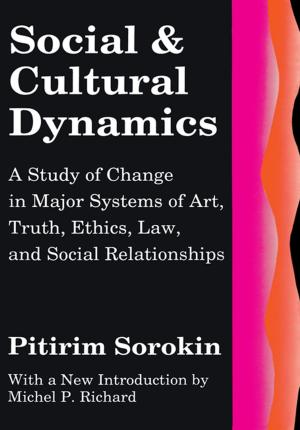The Three Levels of Sustainability
Business & Finance, Business Reference, Business Ethics, Management & Leadership, Management| Author: | Elena Cavagnaro, George H | Curiel | ISBN: | 9781351277945 |
| Publisher: | Taylor and Francis | Publication: | September 8, 2017 |
| Imprint: | Routledge | Language: | English |
| Author: | Elena Cavagnaro, George H | Curiel |
| ISBN: | 9781351277945 |
| Publisher: | Taylor and Francis |
| Publication: | September 8, 2017 |
| Imprint: | Routledge |
| Language: | English |
This book aims to provide the missing link in current debates around sustainability. The role of business, governments, NGOS and multilateral institutions are widely covered and many books discuss their possible actions, strategies and roles. But all of these organizations are made up of individuals. And it is individuals who will need to steer society and organizations toward a more just and equitable world.The book takes a holistic approach to sustainable development. The authors argue that this approach starts and ends with the human being. They believe that the personal dimension of sustainable development has been neglected and that it is clear that sustainable societies cannot be achieved without committed individuals who are convinced of the need to be part of the sustainability project.The authors frame their ideas around the Three Levels of Sustainability (TLS) framework which they argue addresses at least some of the weaknesses inherent in a fragmented approach to sustainability. Their approach encompasses societal, organizational and individual levels; and, by looking through the lens of how sustainability has evolved, provides a roadmap for producing the kind of leaders necessary for sustainable development in all of its dimensions – people, planet and profit. The focus on how the individual can contribute to these three dimensions is unique.To arrive at this multi-level and multi-dimensional framework, the book introduces and analyzes theories from sustainable development, corporate social responsibility and personal leadership and systemically looks for linkages between them that are useful for sustainability.This framework is placed firmly in its historical context. The authors are highly literate about the development and interpretations of sustainability and bring us to their current position via informed discussions on the history of economics, business-and-environment, social development, the corporation and the profit principle, CSR, and measurement and reporting.The book has been designed as both a text for students as well as those already in management and leadership positions in the private, public or non-profit sectors and will also prove invaluable to those wishing to familiarize themselves with sustainability.
This book aims to provide the missing link in current debates around sustainability. The role of business, governments, NGOS and multilateral institutions are widely covered and many books discuss their possible actions, strategies and roles. But all of these organizations are made up of individuals. And it is individuals who will need to steer society and organizations toward a more just and equitable world.The book takes a holistic approach to sustainable development. The authors argue that this approach starts and ends with the human being. They believe that the personal dimension of sustainable development has been neglected and that it is clear that sustainable societies cannot be achieved without committed individuals who are convinced of the need to be part of the sustainability project.The authors frame their ideas around the Three Levels of Sustainability (TLS) framework which they argue addresses at least some of the weaknesses inherent in a fragmented approach to sustainability. Their approach encompasses societal, organizational and individual levels; and, by looking through the lens of how sustainability has evolved, provides a roadmap for producing the kind of leaders necessary for sustainable development in all of its dimensions – people, planet and profit. The focus on how the individual can contribute to these three dimensions is unique.To arrive at this multi-level and multi-dimensional framework, the book introduces and analyzes theories from sustainable development, corporate social responsibility and personal leadership and systemically looks for linkages between them that are useful for sustainability.This framework is placed firmly in its historical context. The authors are highly literate about the development and interpretations of sustainability and bring us to their current position via informed discussions on the history of economics, business-and-environment, social development, the corporation and the profit principle, CSR, and measurement and reporting.The book has been designed as both a text for students as well as those already in management and leadership positions in the private, public or non-profit sectors and will also prove invaluable to those wishing to familiarize themselves with sustainability.















